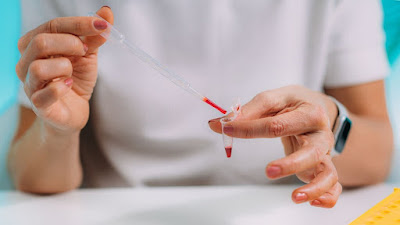
Recent advances in genetics have played a crucial influence in the tremendous improvements made in medicine. DNA testing to customize medicine prescriptions is one of the most exciting uses of genetic technology. Doctors can now customize drugs to each patient’s genetic profile by looking at their genetic makeup. In this article, we will examine the novel idea behind drug test, their implications for personalized medicine, and how they are altering the way we think about healthcare.
Understanding the Human Genome
An important turning point in genetic research was the 2003 completion of the Human Genome Project. It revealed the intricate details of our genetic code by mapping out the whole human genome. This outstanding accomplishment opened the door to a greater comprehension of how heredity affects our health and how we react to treatments.
Pharmacogenomics: The Intersection of Genetics and Medicine
Pharmacogenomics is the area of genetics that focuses on how a person’s genetic makeup affects how they react to medications. It looks for genetic variants that impact drug efficacy, metabolism, and possible side effects. Healthcare professionals can choose and administer the proper medication at the right dose by considering these genetic variations.
What is DNA testing for medication efficacy?
DNA testing for pharmaceuticals examines your genetic makeup specifically to look for variations in your genes or chromosomes. This test scans your DNA for specific variants linked to interactions with numerous drugs for conditions like cancer, infectious diseases, hypertension, heart failure, ADHD, depression, and dozens more. Genetic testing for pharmaceutical effectiveness will assist in identifying which drugs should be avoided and which might be worth trying. Prior to beginning a new therapy, be aware of the results of your gene test for pharmaceuticals to lessen the possibility of side effects and boost the likelihood of success. Pharmacogenetic testing offers lifelong knowledge that can be used in any future discussions of medications.
DNA tests can potentially guide drug choices
Pharmacogenomics is the study of gene expression on the ability to metabolize or break down medications. The term “gene expression” is important because we’re discussing how much your genes influence your response to a drug. Much like a play or movie’s director, your genes instruct other parts of your body. One of the things your genes direct is the production of enzymes required to break down (or “metabolize”) the drugs you take. These enzymes influence how effective a drug test might be for you and how likely you are to experience negative side effects. Your unique combination of genes is called your genotype. Your genotype can tell us if you will make more or significantly less enzyme than others. These enzymes help break down the medications into substances the body can more easily excrete. However, these substances can be active in some cases, and some are even harmful before they are excreted. This partially explains why some people will get no effect at all while others end up in the hospital with severe side effects from the same medication at the same dose.
Many factors affect how you metabolize medications, including your age, gender, diet, whether or not you smoke, whether or not you are pregnant, your other medical problems, and, very importantly, the other medications you are taking (including over-the-counter drugs and herbal supplements). Choice DNA often use the analogy of a pie to describe the effect of genetics on a medication’s metabolism. In some cases, your genetics make up a large part of the pie — up to 90% for some medicines. In other cases, your genetics are only a tiny sliver of the pie, and the other factors comprise the most significant amount.
How is DNA test being used to help doctors prescribe medicine?
Gene testing for medications helps you and your doctor choose medicines that are more likely to work well in your body. Doctors have historically chosen medicines based on their past experiences, the limited information they were given in school, or the representatives of the company that sells the medicine. Now, with your DNA testing for medications, your doctor has more power to help you heal and fewer reasons to go with what has always been done. The doctor can now treat you as the individual that you are. Medicines have evolved greatly; with personalized medicine, health care is growing. There is no longer a need to go through multiple drugs at multiple doses through trial and error. Ordering a genetics test for medications can easily prevent future problems when choosing a medication. In addition, the knowledge learned by doing this can be applied to your current medicines, thereby helping improve your current health.
When the proper medication for the right person is used first, patients have:
- Better adherence
- Improved outcomes
- Improved patient/provider relationships
- Improved trust in the health system
- Quicker relief from symptoms
- Reduced hospitalizations
- Reduced medical bills
Hundreds of medications are now known to be affected by our genes, and your doctors can now predict which medicines may work better for you. Medications affected by your genetics fall in every category, including but not limited to:
- Anticoagulation
- Blood pressure
- Cancer
- Cholesterol
- Heart
- HIV
- Psychiatry, including depression, ADHD, and others
- Seizures
NIPT Test The variations found in your genetics test for medications can help your prescriber reduce the potential for toxicity, find a better-starting dosage, and pick a medicine that has the most potential efficacy.